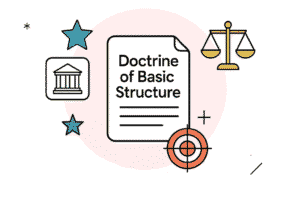Let’s dive into the fascinating world of law and explore two fundamental branches that form the backbone of the legal system: Civil Law and Criminal Law! While they both play vital roles in maintaining order and ensuring justice, they serve very different purposes and follow distinct processes.
Understanding their differences, such as examples, penalties, and the role of courts, is essential for anyone seeking to navigate or comprehend the legal framework. Ready? Let’s break it down!
What is Civil Law?

Civil law is the body of rules that defines the rights and obligations of individuals and organizations in resolving disputes. The main goal of Civil Law is to provide a legal remedy to those who have suffered harm due to another party’s actions or negligence.” This branch covers a wide range of legal issues such as:
- Property disputes
- Contract violations
- Torts (personal injury)
- Family matters (e.g., divorce, custody)
In Civil Law, the aggrieved party (plaintiff) takes legal action by filing a lawsuit against the party accused of causing harm (defendant). The court’s role is to determine whether the defendant is liable and, if so, to provide compensation or specific performance (e.g., enforcing a contract).
What is Criminal Law?
Criminal Law deals with offenses against society and the state. It’s all about maintaining public order, safety, and morality. When someone commits a crime (such as theft, assault, or murder), Criminal Law is invoked to punish the wrongdoer and deter future crimes.
In Criminal Law, the prosecution (representing the state) must prove the defendant’s guilt beyond a reasonable doubt.
Key Differences Between Civil and Criminal Law
Now that we know what each branch entails, let’s highlight the key differences between Civil Law and Criminal Law.
| Aspect | Civil Law | Criminal Law |
|---|---|---|
| Purpose | Resolve disputes and compensate the injured party | Maintain public order by punishing violators |
| Initiation of Cases | Lawsuit filed by the aggrieved party (plaintiff) | Case initiated by the state or government |
| Burden of Proof | Plaintiff must prove by a preponderance of evidence | Prosecution must prove guilt beyond a reasonable doubt |
| Outcomes | Compensation or specific performance (e.g., contract fulfillment) | Punishment (imprisonment, fines, community service, etc.) |
| Examples | Property disputes, breach of contract, family matters | Theft, assault, murder, fraud |
Examples of Civil and Criminal Cases
Civil Law:
- Property Disputes : Who owns the land or property?
- Breach of Contract : Failure to fulfill an agreement (e.g., failure to deliver goods or services).
- Personal Injury Claims : Seeking compensation for harm caused by another party’s negligence.
Criminal Law:
- Theft : Stealing someone’s property.
- Assault : Physically attacking someone.
- Murder : The unlawful killing of another person.
Overlap Between Civil and Criminal Law

Sometimes, a wrongful act can lead to both a criminal case and a civil lawsuit. For instance, in an assault case:
- The criminal case addresses the harm to public safety and seeks punishment for the wrongdoer.
- The civil case allows the victim to seek damages for medical bills, pain and suffering, or emotional distress.
In such cases, criminal law handles the state’s interest, while civil law addresses the individual’s rights.
Conclusion: The Dual Pillars of Justice
Both Civil Law and Criminal Law serve crucial, yet distinct roles in upholding justice.
- Civil Law provides a way for individuals to resolve personal disputes and seek compensation for wrongs.
- Criminal Law ensures societal order by prosecuting individuals who commit offences that harm public well-being.
Together, these branches form the bedrock of the legal system, ensuring fairness and justice for all. Whether you’re resolving personal conflicts or dealing with criminal offences, understanding these branches can help you navigate the legal landscape with confidence!
Now that you have the basics of Civil and Criminal Law, let’s continue our journey of legal knowledge! Whether you’re an aspiring lawyer, student, or just a curious mind, keep exploring the fascinating world of law with Edzorb Law!

 Podcast
Podcast








 Features
Features






